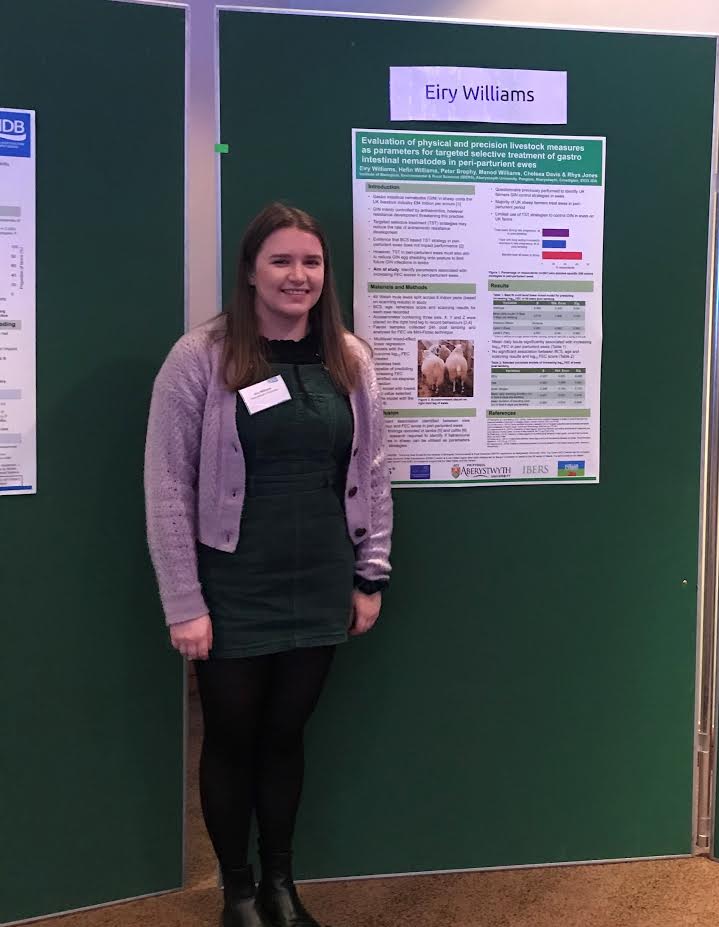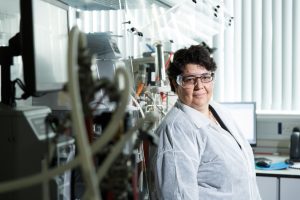WELSH agricultural researchers, Non Williams and Eiry Williams, showcased their work to academics and industry representatives at the Agricultural and Horticulture Development Board (AHDB) 2020 Livestock PhD Conference in Nottingham last week.
Both researchers have been part of a scheme which brings the industry and universities together to undertake work which benefits key sectors of the economy. The two PhD’s are funded through the Knowledge Economy Skills Scholarship (KESS 2) scheme supported by European Social Funds through the Welsh Government and in these cases, Hybu Cig Cymru – Meat Promotion Wales (HCC) is working in partnership with Bangor University and Aberystwyth University on projects which will directly benefit livestock farming.
In the final year of her research at Bangor University, Non presented her work during the first day of the conference. Titled ‘Optimised management of upland pasture for economic and environmental benefits’, Non has been looking at how upland cattle systems can increase production efficiencies, the farms financial return and helping to identify opportunities to reduce greenhouse gas emissions, which will help meet the agricultural sector’s emission reduction target.
“Field trials were set up at Bangor University’s farm which is a typical upland system with the aim to determine the effect of improved and unimproved upland grazed pasture on cattle performance, improved grazed pasture on cattle urine and dung composition and consequently, greenhouse gas emissions from soil following excretion” explained Non.
On the second day of the conference, Eiry Williams presented her poster on sustainable control of gastrointestinal nematodes in sheep. Eiry’s PhD is titled ‘Design and development of a targeted selective treatment (TST) strategy for nematodes during the periparturient period in ewes’.
Eiry explains that “the aim of the project is to help better advise farmers on the most suitable worm control management of adult ewes and their lambs. This work is an important factor in preventing further development of anthelmintic resistance.” Eiry is currently in her second year at Aberystwyth University.
The aim of Eiry’s PhD is to design molecular and computational modelling techniques to develop a novel targeted selective treatment strategy for controlling nematode infections in ewes during the peri-parturient period.
Non has also been presenting results of her experiments on home turf at Coleg Meirion-Dywfor, Glynllifon and Coleg Sir Gar, Gelli Aur at two events organised by HCC as part of the Red Meat Development Programme which is supported by the Welsh Government Rural Communities – Rural Development Programme 2014 – 2020, which is funded by the European Agricultural Fund for Rural Development and the Welsh Government.
PhD conference hears from Welsh researchers















Add Comment